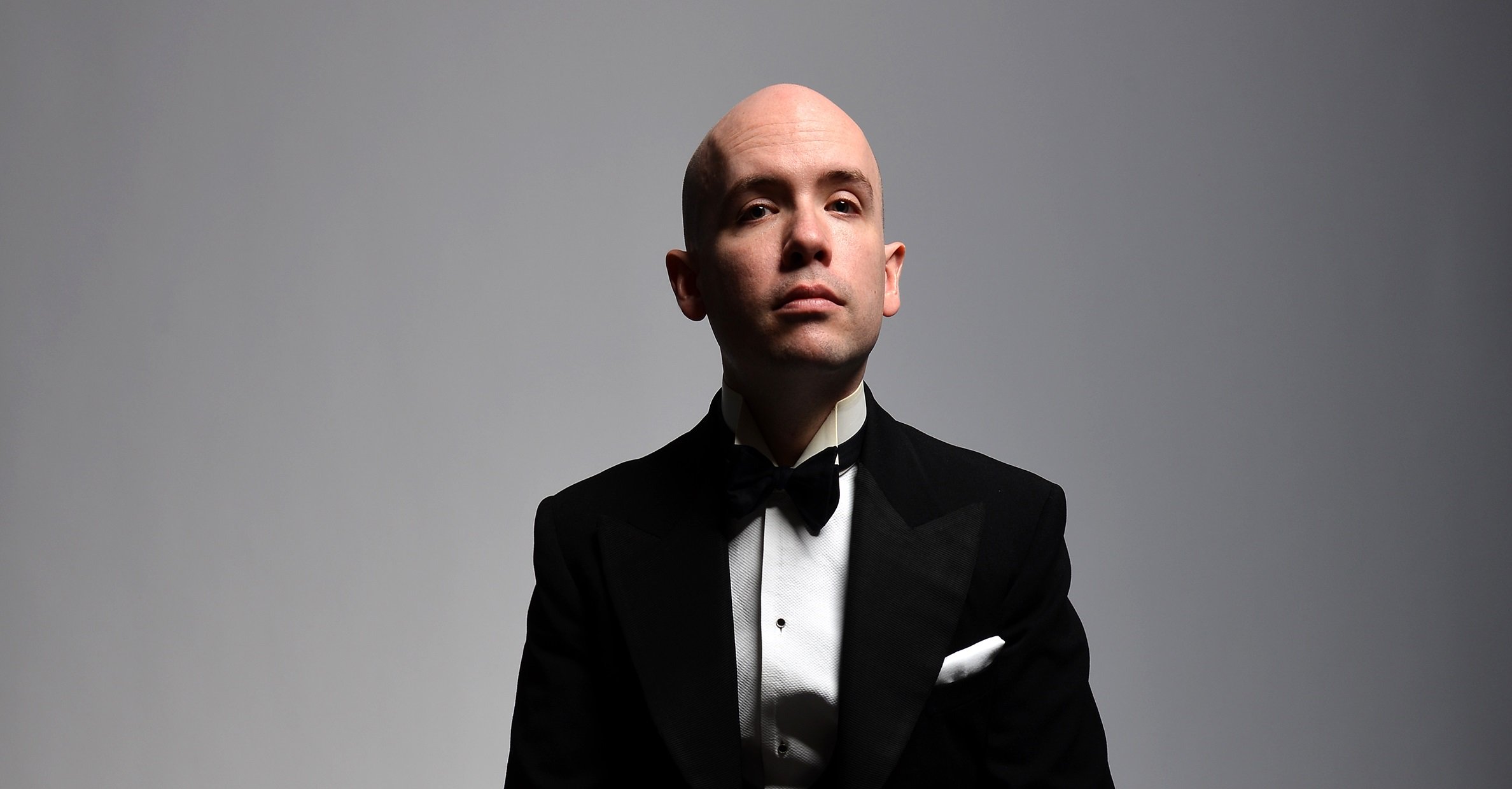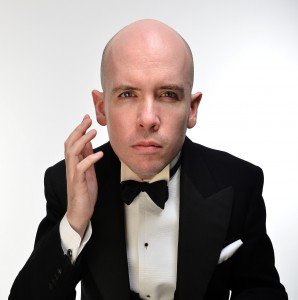Edinburgh Festival Fringe: Tom Allen Interview
By Will Stroude

The city of Edinburgh is gearing up for the Edinburgh Festival Fringe 2014, which will engulf the Scottish capital between August 1-25. One of the most exciting acts heading north is comedian and writer Tom Allen, who Attitude hailed as a gay role model back in 2010.
After a three year hiatus from the festival, Tom’s back with raucous new stand-up show Life/Style, in which he discusses everything from being gay, to our obsession with social media, to dressing up in period clothing. I gave the 31-year-old funnyman to find out what else audiences can expect from him – and the festival – this summer.
You’ve had a bit of a break from the Edinburgh festival for the last couple of years: What made you want to go back?
“Well it’s a crazy festival that no one really talks about. I took a couple of years off to keep getting better really, and I’ve been really lucky to support Sarah Millican and performing in things all around the world, in Australia and America, doing lots of things and just getting better as a stand-up. I wrote the show and it felt right to come back and do it. Edinburgh is very well placed for that. There’s nothing like it in the world and it’s great to hang out with so many inspiring comedians.”
Does audiences’ humour tend to very around the world?
“Certainly, yeah. I think that London audiences are the toughest in the world. Londoners have so much on offer, so in many ways it’s the best training ground. Like any sort of learning experience it’s tough and actually you become stronger because of it. I think I’ve learnt a lot about who I am and who I am on stage and who I am as a creative person.”
What can you tell us about your new show Life/Style?
“Well the show is about lots of things – mainly me – and I talk about the fact that as a teenager I used to dress up in Victorian clothes to disguise the fact that I was gay. It was, in retrospect, a flawed plan. People I really admire say you should write about the things that you find most embarrassing and I think a lot of the time when I was growing up I was this weirdo, sort of, prick! And it was very empowering for me to just talk about it on stage and hope that other people have similar things. And the more I’ve spoken to people the more I realise that people all have their thing of being a bit weird. And lots of people like to dress up in Victorian clothing! I think a lot of queer culture is about being different and on the outside, but it’s a protest as well – it’s a protest to be different. That was one of the things that was important when I was writing the show; that we don’t all become homogenised. There’re lots to celebrate with gay marriage – garriage as I like to call it – but whilst it’s important I think there’s a long way to go. In this country I think we celebrate how liberal we are as a society, but I don’t think we’re as liberal as we like to imagine.”
There must be a wealth of comedy and absurdity in the gay world to draw from?
“Yeah audiences respond really well to you being yourself, if you say ‘This is who I am’ and you’re confident in how you deliver yourself. For a long time I was talking about what Grindr was and people would always look really confused and I was just like, ‘Well you have to register for it – it doesn’t just look at you iTunes and assume! But I think straight people are fascinated by gay culture, just look at the way Tinder is growing. It’s brought a new-found sexual liberation for a lot of people.”
You talk about how we appear on social media in the show: What is peoples’ biggest social media crime?
“Well I don’t know about crimes! But what I get annoyed with is the way there’s this watching eye of everyone we’ve ever met on Facebook and we’re constantly trying to impress them. I just sort of wish we all went ‘Oh bollocks to all that, I don’t care!’ And I’m as addicted to it as anyone else, and you’re scrolling through it almost waiting for the update that’s going to tell you you’re okay as a human being! It’s like, just go out! Remember those days when you’d just get on a train and look out a window! Oh, I’m getting very cynical in my old age!”
Many gay people find humour is a good defence mechanism growing up: Is that how your journey to comedy started?
“Mostly. I think more and more though that a lot of the things I did and the choices I made were due to weakness. That thing where people use things like ‘camp comedy,’ and I have such strong feelings about it. It’s not acceptable to say gay-acting or sissy-acting but somehow it’s alright to say camp. I think ingrained in the word camp is this disdain for the feminine and for people being themselves. I think there was a subtle form of protest in that, because I innately didn’t want to fit in with the people around me. I wasn’t interested in apologising for myself .”
Stand-up can be a brutal experience: Have you ever had to face down heckling from drunken louts?
“I have, definitely. I’ve experience all through my stand-up career, which is ten years now. It’s like I said, we got ‘Oh yeah we’re really liberal’ but there are some people who aren’t. Even in a gig that was going well I had someone shout ‘poof’ in the middle of it, and it felt like a very dated term – so credit to them to using such a vintage form of derision – but I did find it alarming. I found the best way to meet it on stage was just to go ‘Well that’s not a very nice thing to say,’ instead of calling them an arsehole and have everyone clap. You can beat them down but a lot of the time you have to show them that it actually hurts. Even name-calling represents some kind of casual disdain, and that’s the thing about a lot of bullying and aggression in society; it’s not like Grange Hill and being made to give up your dinner money, it’s subtle things. The people I really respect as comedians, like Sarah Millican and Victoria Wood, are people who’ve represented some vulnerability on stage – I’m not just some bloke who goes on stage and shouts some banal things about being in a relationship with a woman, I want to show that people are different in the world.”
What are your top survival tips for the Edinburgh festival for people who are going or thinking of going?
“I think absolutely go and see the people you want to see off the television and the stuff with all the bells and whistles, but take those risks and go and see a few things off the beaten path or just things that are a bit strange! Go in with an open mind and an open heart and you might see something you really like – you can see clowns who come from all over the world to be there! There are street performers, there’s just so much. It’s a different sort of trip away.”
You do a weekly podcast ‘At Home with Tom Allen,’ so if you could have three people at home with you, who would it be and why?
“Well the next one I’m going to do will probably be in the sitting room, and so in the sitting room I’d like to have RuPaul, John Waters and… maybe Michelle Obama; the four of us. They’d have to listen to me read out a story that’s the only thing, but I think the most extravagant way to use their celebrity would be to have them there and not say anything!”

